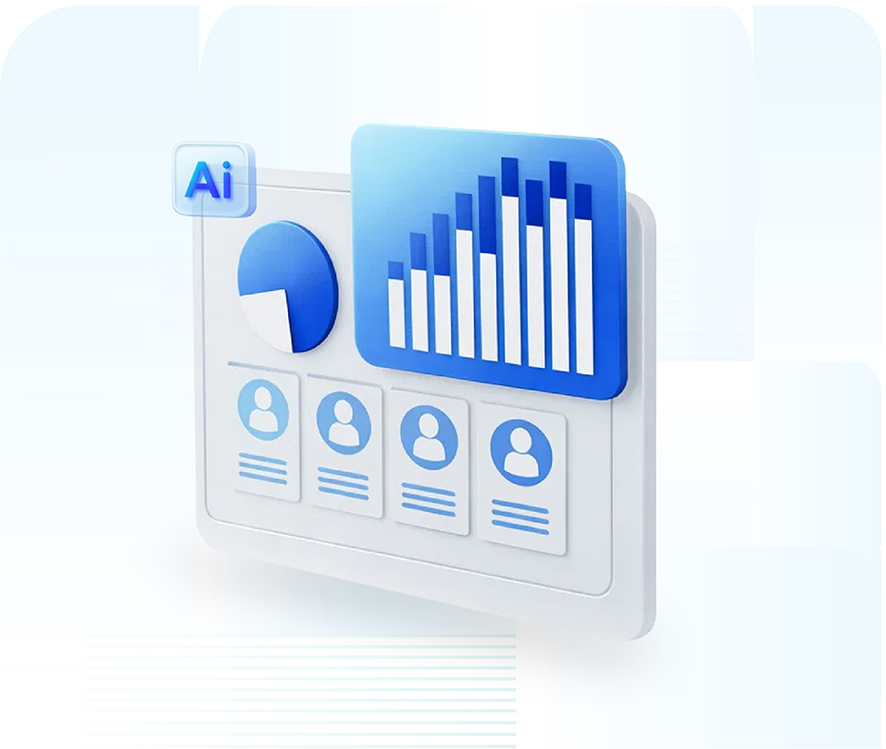Blog
Cloud computing and financial services
By Kamran Khalid Chief Product Officer - Unity, on October 26, 2022
Discover how cloud computing is revolutionizing the financial services with benefits like enhanced scalability, cost efficiency, driving digital transformation.

Introduction
The financial services industry is in the midst of digital transformation, and cloud computing is playing a significant role. According to a study by Google Cloud, 83% of surveyed financial institutions report deploying cloud technology as a part of their primary IT infrastructure.
There are many reasons for this shift. For one, the traditional model of IT-with its siloed data centers and inflexible systems-can no longer keep up with the pace of change in the financial services industry. Cloud computing, on the other hand, offers the agility and flexibility that businesses need to respond quickly to market changes. In addition, the move to the cloud is also driven by the need to lower costs. With capital expenditure budgets under pressure, financial institutions are turning to cloud vendors and SaaS products for pay-as-you-go models that free up cash for other investments.
This article provides a brief overview of the significant strides cloud computing is making in the financial services sector.
What is Cloud Computing?
Cloud computing is the delivery of computing services-including servers, storage, databases, networking, software, applications, analytics, and intelligence-over the internet ('the cloud') to offer faster innovation, flexible resources, and economies of scale.
Cloud computing is a model for enabling ubiquitous, convenient, on-demand network access to a shared pool of configurable computing resources (e.g., networks, servers, storage, applications, and services) that can be rapidly provisioned and released with minimal management effort or service provider interaction.
Types of Cloud Services
There are three main types of cloud services: Infrastructure as a Service (IaaS), Platform as a Service (PaaS), and Software as a Service (SaaS). Organizations can use one, two, or all three types of services depending on their needs.
Infrastructure as a Service (IaaS): IaaS refers to the basic building blocks of cloud computing-servers, storage, networking, and data center space. This service is often used by businesses that don't want to invest in their on-premise infrastructure or need the flexibility to scale up or down quickly as their business needs change. With IaaS, businesses can rent computational resources on an as-needed basis from a cloud provider such as AWS or Azure.
Platform as a Service (PaaS): PaaS provides a platform for businesses to develop, test, and deploy applications without managing the underlying infrastructure. PaaS products typically include everything needed to build an application, including development tools, database management systems, web servers, and more. Common PaaS offerings include AWS Elastic Beanstalk, Azure App Service and NETSOL Cloud Services.
$791.48B is the projected valuation for the global cloud computing market in 2028.
Software as a Service (SaaS): SaaS allows businesses to access software applications hosted on the cloud by a third-party provider such as Netflix, Salesforce or Microsoft Office 365. This service is often used for mission-critical applications such as customer relationship management (CRM), enterprise resource planning (ERP) or to compute complex calculations over the cloud providing calculations as a service. With SaaS applications, there's no need for businesses to install or manage software on their computers-everything is taken care of by the SaaS provider.
Cloud computing has been proliferating in recent years, thanks to its many benefits to businesses and consumers. Fortune Business Insights reports that the global cloud computing market is projected to reach USD 791.48 Billion by 2028 at a CAGR of 17.9% from 2022 to 2028.
Cloud Computing for Financial Services
Organizations are turning to cloud computing to gain a competitive edge as the financial services industry becomes increasingly digitized. Cloud computing offers several benefits for financial services firms, including improved security, increased agility, and enhanced scalability.
Cloud computing has enabled financial service providers to improve their customer experience drastically. If we take the example of the banking sector, the cloud has enabled native integrations with financial apps for complex calculations, budget tracking, and management. Banks can now communicate and share data in a unified manner using Open Banking APIs that run all their computations on the cloud to provide a seamless user experience that lives up to industry standards. With this platform, companies such as Stripe can provide a global solution for ease of online transactions that can natively communicate with different banks for transactional management due to APIs deployed using the cloud.
The ability to quickly and easily access vast amounts of computing power has made it possible for financial institutions to handle complex calculations, due to which cloud-based calculation engines have become increasingly popular in the industry.
The financial services industry is under constant pressure to keep pace with the rapidly changing landscape of technology. To stay competitive, many financial services firms are turning to cloud computing. Cloud computing offers several advantages for businesses in the financial sector, including improved security, increased agility, and enhanced scalability. Let's take a closer look at some of these benefits in turn.
Key Benefits of Cloud Computing for Financial Services
The first benefit of cloud computing for financial services is scalability. Because cloud-based applications can be quickly and easily scaled up or down as needed, financial services firms can respond quickly to changes in demand. For example, if a new regulation requires firms to maintain more data than currently, they can scale up their cloud storage to accommodate the new requirement. Similarly, if a firm experiences an unexpected surge in customer inquiries, it can quickly scale up its call center capacity by adding more agents.
Cloud computing is the delivery of computing services-including servers, storage, databases, networking, software, applications, analytics, and intelligence-over the internet ('the cloud') to offer faster innovation, flexible resources, and economies of scale.
Cloud computing also provides financial services firms with greater flexibility. With on-premise applications, firms typically have to commit to a certain capacity upfront, even if they don't use it all. This can result in wasted resources and money. However, with cloud-based applications, businesses only pay for the resources they use. The pay-as-you-go model gives businesses greater flexibility to adjust their use of resources as their needs change.
Cloud computing can help financial services firms save money. By moving to the cloud, firms can avoid the hefty upfront costs associated with on-premise software deployments, such as server hardware and software licenses. In addition, because cloud providers typically charge on a pay-as-you-go basis, firms can further reduce their costs by only paying for the resources they use and benefit via flexible, usage-based subscription fee as pricing options.
Lastly, data security is one of the biggest concerns for financial services firms. Sensitive customer data must be protected from cyber threats at all costs. With cloud computing, businesses can use the latest security features and technologies to safeguard their data.
Conclusion
Cloud computing has become an integral part of the financial services sector in recent years, enabling financial institutions to share data and applications securely and efficiently. As a result, cloud computing has significantly impacted the financial services industry and is poised to continue doing so in the years to come.
Amazon has substantially improved its cloud service platform to make it more friendly for the financial services sector. It has expanded its infrastructure to more locations and is planning on adding more in the future to enable a better experience.
Cloud computing offers several benefits for financial services firms, including improved security, increased agility, and enhanced scalability.
Different financial services sectors, such as AI ML analytics, are starting to onboard AWS into their ecosystems to provide CRM for easy access to information for their customers and employees. With the growing acceptance of the cloud for financial services, companies like Amazon and Nvidia are also focusing on producing need-specific architectures for processors and GPUs, enabling faster data processing with low deployment costs and less need for maintenance. Big enterprises are also quick to adopt cloud services. Goldman Sachs has deployed its cloud forensic, AWS supply chain management tools to provide better integration support and improve decision-making.
The ability to quickly and easily access vast amounts of computing power has made it possible for financial institutions to handle complex calculations that were previously too difficult or time-consuming. Hence, thanks to advancements in cloud computing, cloud calculation engines are becoming increasingly popular in industries like financial services. A prime example of such a cloud-based calculation engine is that of Flex.
Flex is an instant cloud-based calculation engine that guarantees penny-accurate calculations at all stages of the contract lifecycle through various calculation types. To learn more, visit the Financial Services Marketplace.
Related blogs

Blog
Data modernization in 2026: Building AI-ready foundations for real time business

Blog
How intelligent portals are redefining broker-to-lender collaboration

Blog



